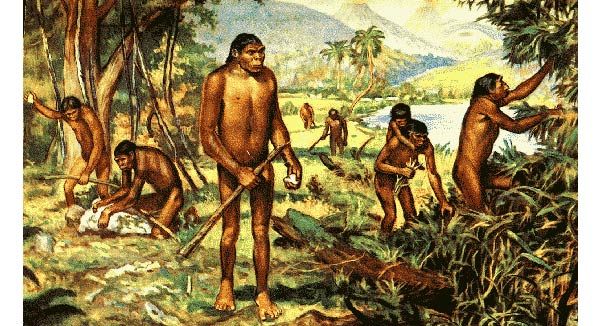New publications
Ancient humans were cheese-eaters
Last reviewed: 02.07.2025

All iLive content is medically reviewed or fact checked to ensure as much factual accuracy as possible.
We have strict sourcing guidelines and only link to reputable media sites, academic research institutions and, whenever possible, medically peer reviewed studies. Note that the numbers in parentheses ([1], [2], etc.) are clickable links to these studies.
If you feel that any of our content is inaccurate, out-of-date, or otherwise questionable, please select it and press Ctrl + Enter.
Nowadays, people know how to cook food in all sorts of ways – and it is considered an art. For example, meat can be baked, fried, boiled, stewed – and all these methods require fire.
Scientists from the University of York have conducted a long and painstaking archaeological study, the results of which have shown that primitive people who lived on Earth more than a million years ago did not process food thermally.
Experts have examined the teeth of one of the ancient people – a hominid of the Pleistocene era. More precisely, the plaque on his teeth was examined. The remains of an ancient civilization discovered inside a cave near the Atapuerca mountain range in northern Spain were used for the experiment.
It turned out with 100% certainty that people of this time period did not use fire to process and cook food. Their food - in particular, meat and fish - was consumed only raw.
The full results of the study were published in the German periodical Naturwissenschaften. The essence of the experiment was that the specialists removed plaque elements from the dental remains and conducted a detailed analysis of its smallest particles. According to the conclusions, the plaque consisted of remains of animal tissue, parts of insects, pollen from pine needles and starch granules. At the same time, no signs of heat treatment of the food consumed were found.
Based on the results of the study, archaeologists came to the following conclusion. At the time when the most ancient people migrated from the African continent and inhabited the current European territory (and this was about 1.2 million years ago), they did not yet know about the use of fire. Fire appeared in people's lives a little later, and before that their diet consisted of raw meat and fish, raw plant products, insects.

It is possible that ancient people not only did not know how to use fire, but were also afraid of it. After all, fire, in addition to its undeniable benefits - light, warmth and protection - also carries enormous destructive power. Man has seen the consequences of forest fires, lightning strikes, lava eruptions everywhere, so for many thousands of years fire was considered exclusively a source of destruction.
Only after taming the "fire dragon" did the ancients realize what advantages they had been deprived of. Since making fire was initially a complex science, it was guarded and maintained around the clock, preventing it from going out. For many, losing the source of fire became associated with death - to such an extent did people accept fire into their lives.
The first scientific evidence of food processing by fire was found in remains that are about 800 thousand years old. It was from this period that active human evolution began: with the advent of fire, people not only learned to cook food, but also used it for other household needs. For example, fire began to process materials (iron, copper, stone), warm up, burn clay for dishes, scare away wild animals, etc.
Nowadays, it is difficult to imagine normal life without sources of fire, heat and light. And eating raw meat is generally considered nonsense. However, as the study confirms, our ancestors ate exactly like that.
